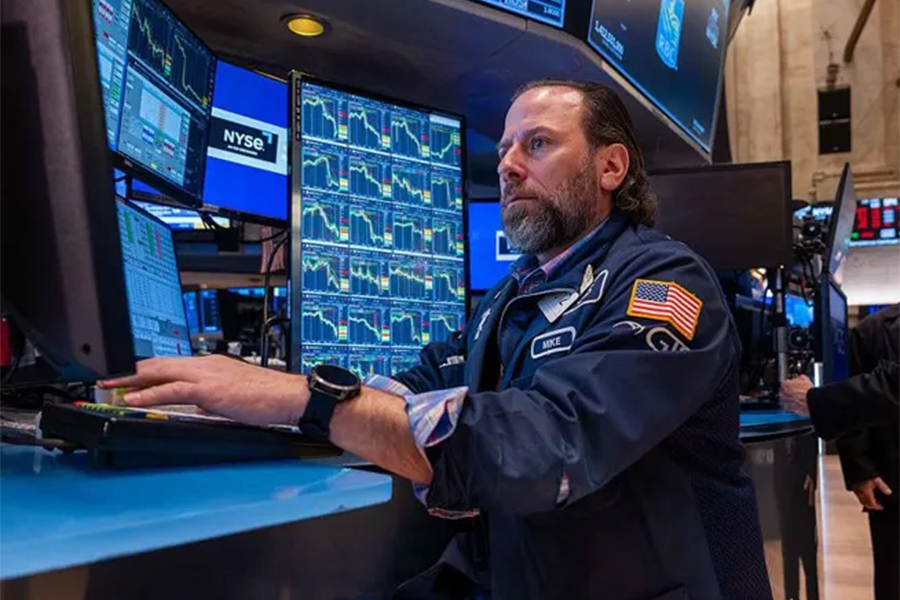
Published :
Updated :

Stock market turmoil deepened on Friday, as China hit back at tariffs announced by US President Donald Trump, raising the likelihood of an extended trade war and damage to the global economy.
All three major stock indexes in the US plunged more than 5 per cent, with the S&P 500 dropping almost 6 per cent, capping the worst week for the US stock market since 2020, according to a BBC report.
In the UK, the FTSE 100 plunged almost 5 per cent - its steepest fall in five years, while Asian markets also dropped and exchanges in Germany and France faced similar declines.
Trump, who has vowed to remake the global trade order, dismissed concerns about the market shock, noting that the US labour market is strong.
"Hang tough," he urged his followers on social media. "We can't lose."
The global stock market has lost trillions in value since Trump announced sweeping new 10 per cent import taxes on goods from every country, with products from dozens of countries, including key trading partners such as China, the European Union and Vietnam, facing far higher rates.
Analysts say the moves, some of which are due to go into effect as soon as Saturday, amount to the biggest tax increase in the US since 1968.
They expect the measures to lead to a contraction in trade, and have warned they could drive many countries into an economic recession.
China responded to Trump on Friday by hitting US goods with import taxes of 34 per cent, curbing exports of key minerals and adding American firms to its blacklist, describing Trump's actions as "bullying" and a violation of international trade rules.
Other countries appear to be hoping they will be able to negotiate deals, despite conflicting signals from the White House about its appetite for talks.
Maros Sefcovic, the trade commissioner for the EU, which has been planning to retaliate, said on Friday that he had had a "frank" two-hour exchange with US officials, and wrote on social media the trade relationship needed a "fresh approach".
"The EU's committed to meaningful negotiations, but also prepared to defend our interests," he said. "We stay in touch."
Trump's moves are consistent with promises he made on the campaign trail last year.
But they were more far-reaching than some analysts had expected, triggering the worst week for the stock market since 2020, when the Covid-19 pandemic led to global shutdowns and other disruption.
The sell-off started with firms such as Apple and Nike, which rely heavily on suppliers in Asia. But on Friday, it moved into sectors that would typically not face the direct impact of tariffs, such as consumer staples, healthcare and utilities.
"Candidly the mood is pretty sour and it should be," said Mike Dickson, head of research and quantitative strategies at Horizon Investments in the US, warning that it will take weeks to understand the impact of Trump's tariffs.
"What we're really worried about right now is what we saw at 6am-ish [when China retaliated]," he said, "How much more of that is out there?"


 For all latest news, follow The Financial Express Google News channel.
For all latest news, follow The Financial Express Google News channel.